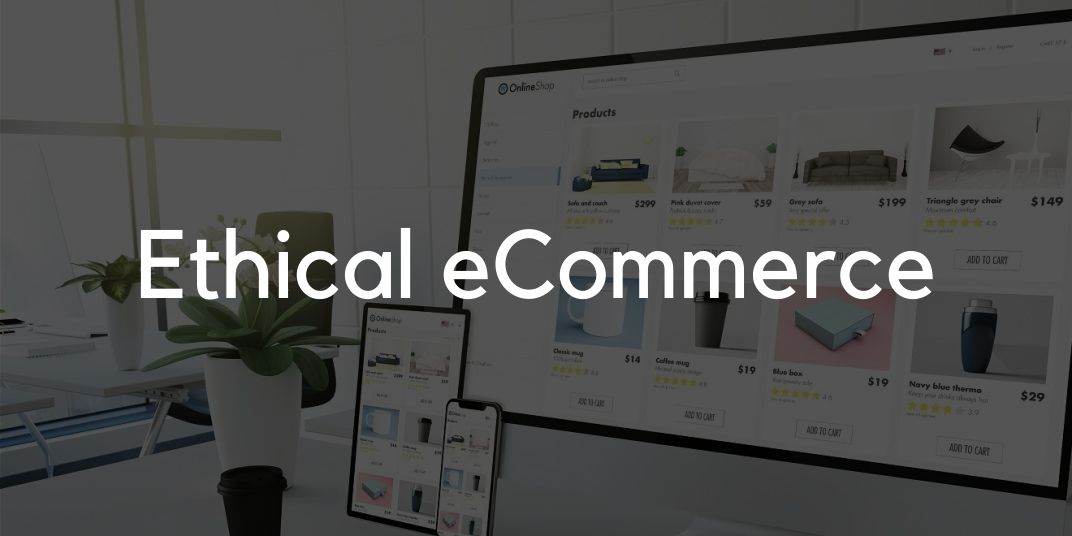
Our beautiful planet is not out of the woods yet but social values and ethics in e-commerce are bound to play a very important role in changing mentalities. Whether it is sustainable development, social justice, manufacturing, marketing, sales and distribution / delivery of products. The fusion of ethics and business is not just fashionable but is becoming a best practice.
In e-commerce, ethics could be defined as a reflection of moral questions and behaviors to adopt to make our exchanges more human and our planet habitable. But what do today’s consumers want?
1 – Consumer behavior
An international study on the subject: The Future Shopper 2019 helps us to see more clearly and specifies that “the values of consumers will strongly influence the behavior of purchase and that of merchants.”
Some interesting figures:
- 55% of respondents said that the ethics and morals of brands weigh in the purchase decision, a share that increases to 58% among 35/44-year-olds.
- 45% choose brands and companies that care about the environment, in other words, eco-responsibility.
- Young people (16-24 years old) seem to be more committed to local or national products. 53% prefer to shop with brands or retailers who have a physical store.
- In France, 56% of respondents consult prices and comments on Amazon even when they buy on other sites or in stores. The web giant is essential!
Consumers are increasingly aware of the ecological and ethical footprint of their purchases, including digital purchases and its “real or hidden” impacts, not to mention the cost of eCommerce and consumerism in general.
Zero waste products are the key to the future! Consumers prefer to buy organic, sustainable, ecological, natural, and less energy-consuming products. They will prefer products without packaging and biodegradable or failing that, with recyclable packaging…
A consumer’s purchasing decision for a brand also depends on its values and ethics in the production/sale of products. For example, we will prefer a company that recycles all of its waste, that uses less cardboard or that re-uses it, that collects it from the Store / collection point (click & collect), that uses “clean”, electric or bikes in big cities, who live on renewable energy or who collaborate with associations.
Note that it is particularly important to take into account your future consumers including Generation Z , very committed to the future of our planet like Greta Thunberg, 16 years old, young climate activist, named personality of the year 2019 by the “Time” magazine whose ethical influence is gaining momentum.
.@GretaThunberg is TIME's 2019 Person of the Year #TIMEPOY https://t.co/YZ7U6Up76v pic.twitter.com/SWALBfeGl6
— TIME (@TIME) December 11, 2019
2 – Respect people and the environment in our companies
We can evoke quite a few exemplary cases like Lisa Ingram, co-founder of LittleLeaf Organic who seeks to merge sustainable development and social justice in her business:
“We want to help people make better choices for clothing and home textiles by offering better, organic and sustainable products that are produced fairly and at a fair price. By doing so, we can build a better, more ethical, more environmentally friendly and more rewarding supply chain for everyone involved in building it.”
Another very interesting case, that of Leeatt Rothschild, CEO of Packed with Purpose, who seeks to raise awareness of social issues by combining his mission with the products she sells:
“We transform the art of giving by integrating personal and impactful stories into the donation process. The company’s social mission is expressed both in the products it sells and through the people who make them. For example, our chocolate coated pretzels are made by disabled adults participating in a vocational training program”
As for the web giant Amazon, even if it seems essential, ethical popularity is much less positive. Although it has committed to using 100,000 electric trucks by 2030 for delivery or implementing a packaging system that has saved 500 million cartons over 10 years, the American platform is no longer l unanimity (especially among young people) due to the scandals over the working conditions of employees or the importation of products internationally which provokes many social injustices.
3- The authenticity of the power of Sincerity
Sincerity is the keyword. This is not a marketing strategy, but a mission, a vocation to support your consumers towards an eco-responsible lifestyle. For the future of the planet but also for the next generations to come. If you are not authentic in your approach, you risk risking the wrath of your community through social media.
“All the efforts made by a company must be authentic! People are being notified and will see if this is an approach designed to attract consumers, or to build or restore a reputation. ” , said Lauren J. Litton., founder of ISPConsulting.”
Beyond consumers, your suppliers and employees will also have to share your vision and provide services that meet your ethical commitments.
“It is crucial for companies to ensure that the values of their suppliers align with their own mission. An important component of our work is to conduct in-depth research when selecting and approving our suppliers. We focus on five impact areas: women’s empowerment, the environment, youth development, workforce development, and health and well-being, ”she said. Explain. . “In addition to ensuring that our suppliers fall into one of these categories, we also demand that they meet high standards in product quality, packaging and delivery. Said Rothschild.

Comments are closed.